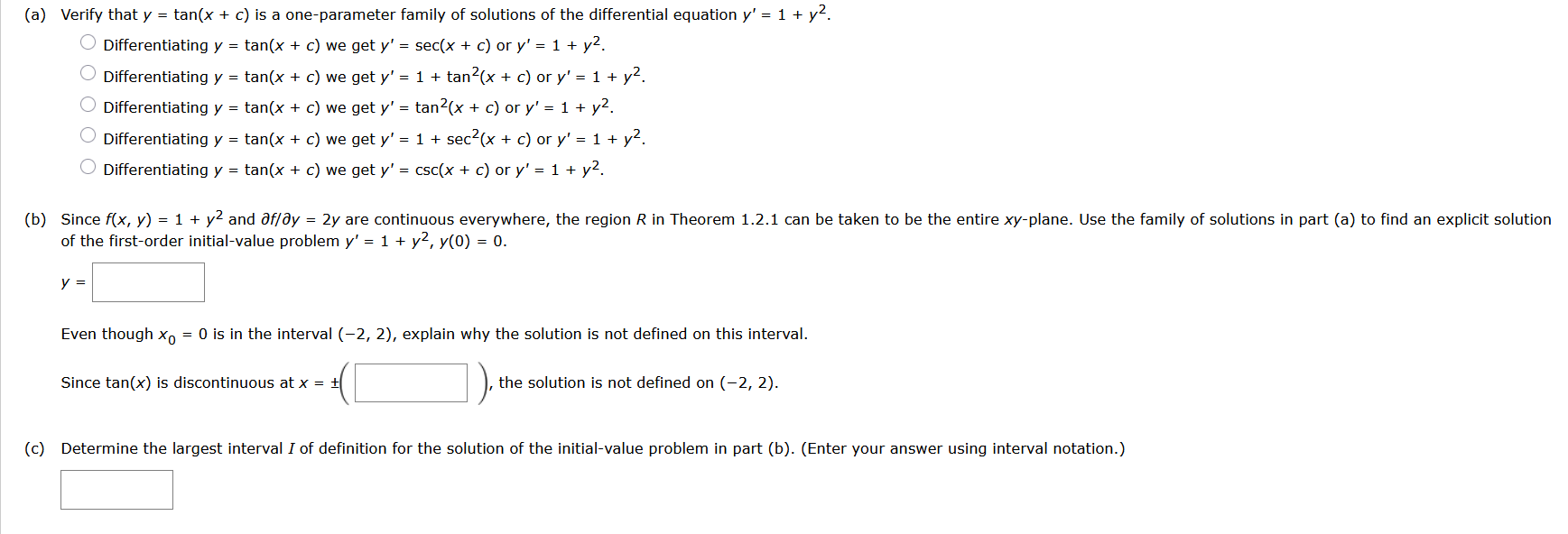Home /
Expert Answers /
Calculus /
a-verify-that-y-tan-x-c-is-a-one-parameter-family-of-solutions-of-the-differential-equation-y-39-pa558
(Solved): (a) Verify that y=tan(x+c) is a one-parameter family of solutions of the differential equation y^(') ...
(a) Verify that y=tan(x+c) is a one-parameter family of solutions of the differential equation y^(')=1+y^(2).
Differentiating y=tan(x+c) we get y^(')=sec(x+c) or y^(')=1+y^(2).
Differentiating y=tan(x+c) we get y^(')=1+tan^(2)(x+c) or y^(')=1+y^(2).
Differentiating y=tan(x+c) we get y^(')=tan^(2)(x+c) or y^(')=1+y^(2).
Differentiating y=tan(x+c) we get y^(')=1+sec^(2)(x+c) or y^(')=1+y^(2).
Differentiating y=tan(x+c) we get y^(')=csc(x+c) or y^(')=1+y^(2). of the first-order initial-value problem y^(')=1+y^(2),y(0)=0.
y=
Even though x_(0)=0 is in the interval (-2,2), explain why the solution is not defined on this interval.
Since tan(x) is discontinuous at 